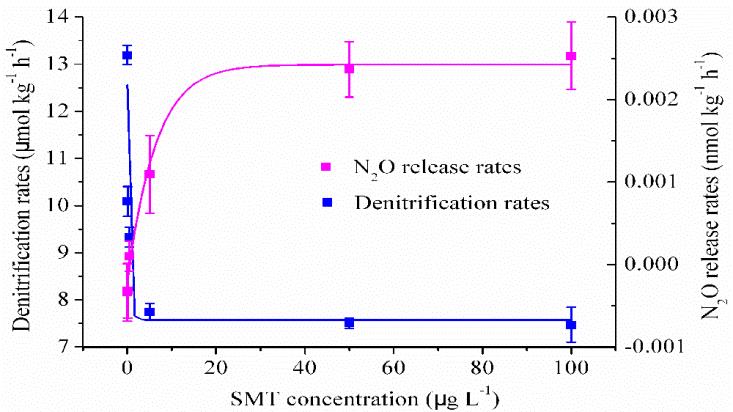Effects of Sulfamethazine on Denitrification and the Associated N2O Release in Estuarine and Coastal Sediments
Denitrification is an important pathway of nitrogen removal and nitrous oxide (N2O) production in estuarine and coastal ecosystems, and plays a significant role in counteracting aquatic eutrophication induced by excessive nitrogen loads. Estuarine and coastal environments also suffer from increasing antibiotic contamination because of the growing production and usage of antibiotics. In this study, sediment slurry incubation experiments were conducted to determine the influence of sulfamethazine (SMT, a sulphonamide antibiotic) on denitrification and the associated N2O production. Genes important for denitrification and antibiotic resistance were quantified to investigate the microbial physiological mechanisms underlying SMT’s effects on denitrification. SMT was observed to significantly inhibit denitrification rates, but increasing concentrations of SMT enhanced N2O release rates. The negative exponential relationships between denitrifying gene abundances and SMT concentrations showed that SMT reduced denitrification rates by restricting the growth of denitrifying bacteria, although the presence of the antibiotic resistance gene was detected during the incubation period. These results imply that the wide occurrence of residual antibiotics in estuarine and coastal ecosystems may influence eutrophication control, greenhouse effects, and atmospheric ozone depletion by inhibiting denitrification and stimulating the release of N2O.
List of relate results:
-
Environmental Science & Technology ,
2015 ,
49(1)
: 326-333.

